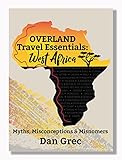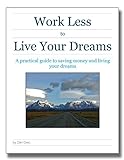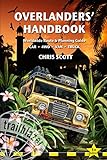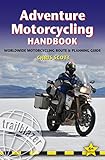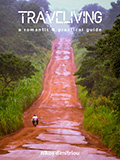Difference between revisions of "South Africa"
(Night driving upgrade) |
(Toll roads upgrading) |
||
| Line 82: | Line 82: | ||
===Toll roads=== | ===Toll roads=== | ||
| − | + | Tolls are used to pay for upgrading road infrastructure. Only major freeways are tolled. The amount charged is usually calculated to be less than the cost of taking an alternative route. Tolls are graded by the size of your vehicle so if you're driving a big overland truck you will pay a lot. | |
| − | + | ||
| + | These tolls can be paid in cash and range from <price cost="20" currency="ZAR" /> to <price cost="120" currency="ZAR" /> for a passenger vehicle. Tolls add up fast in South Africa, and you will spend a lot of money in a month or two. | ||
| + | |||
| + | Credit cards issued by Visa will normally work, regardless of country of origin. Others like Amex, Mastercard, Diners Club etc are less likely to work. Until you establish whether your cards work, you must carry cash for toll booths. | ||
| + | |||
| + | There is an e-toll system which requires a pre-registered tag. Tolls in freeways around Johannesburg and Pretoria have no payment booths. They work electronically and will debit your e-toll tag, or they will read your number plate (license plate) and send a bill by mail to the owner of the vehicle. The same e-toll tags work nationally. | ||
| + | |||
| + | Tolls are common on the N1, N2 and N3 national roads but rare elsewhere. | ||
==Bribery in {{PAGENAME}}== | ==Bribery in {{PAGENAME}}== | ||
Revision as of 09:43, 14 November 2020
West Africa > South Africa
Currency to display:
Contents
- 1 Visiting South Africa
- 2 Entering South Africa with a Car or Motorbike
- 3 Driving in South Africa
- 4 Gas and Diesel price in South Africa
- 5 Safety and Security Considerations
- 6 Camping in South Africa
- 7 Navigation
- 8 Special Overland Travel interests
- 9 Vehicle Maintenance
- 10 Buy or sell a car or motorbike in South Africa
- 11 References
- 12 Helpful External links
Visiting South Africa
South Africa is an enormous country with basically everything on offer from beaches and mountains to lakes and deserts. The cities are very developed and it's possible to buy everything you could ever need for your vehicle or to spoil yourself with great food and drink.
Entering South Africa with a Car or Motorbike
Correct as of: October 2017
Travel Visa for South Africa
The travel visa for South Africa is free for virtually all nationalities, and is given at the border - land or airport.
Duration is usually 90 days, but be careful about just leaving and coming right back again. Everyone has a different experience, but it's quite likely they won't just give you another 90 days right away, but tell you it's mandatory to leave until 12 months have gone past, or to fly into SA from a country that does not border it.
Required Paperwork
- Passport of registered owner.
- Drivers license of registered owner.
- Original vehicle registration.
- (OPTIONAL) Carnet de Passage.
(no copies are required)
NOTE: If you are driving into any country in the South Africa Customs Union (SACU) (Namibia, South Africa, Botswana, Lesotho, Swaziland) You do not require a Carnet de Passage. If you are shipping into or out of any of those countries, you absolutely must have a Carnet de Passage, no exceptions.
South Africa will issue a 6 month Temp Import Permit for the vehicle, which you can use in all the SACU countries. Once you have the 6 month one from South Africa, travel between all those countries is extremely simple - you don't even need to visit Customs or complete any vehicle-related paperwork at each border.
Process at border
- Get yourself stamped in at Immigration.
- Go to Customs to get a Temporary Import for the vehicle. Using the vehicle registration the officer will write out an import form, valid for six months (make sure to ask for 6 months).
- If you have a Carnet de Passage, you don't need the temp import permit, just get the Carnet stamped. If it's already been stamped into a SACU country, you don't need to get it stamped out/in, it just stays "in".
Cost of entry
Free of charge when crossing land borders or shipping.
Permitted length of stay
The Temp Import Permit is usually valid for 6 months, and a Carnet stamp probably means it's permitted for 12 months total. This can possibly be extended with a permission letter from the AA, but likely it's just easier to leave the entire SACU and come back.
Extension of stay
Talk to Customs or the AA.
Storing a vehicle and temporarily leaving the country
Leaving the vehicle and returning is extremely common in South Africa. Make sure you are back and leave the SACU countries before the Temp Import Permit expires.
Exiting with a vehicle
- Get yourself stamped out at Immigration.
- Get your Carnet de Passage stamped out if you have one, or hand in your Temp Import Permit.
Driving in South Africa
Recommended books for Overlanding in South Africa
Travel insurance for South Africa
World Nomads offer the most flexible Travel Insurance at the best prices for multi-country / multi-year trips. You can buy, extend and claim online, even after you've left home.
Vehicle insurance requirements
Third party cover is provided by the Road Accident Fund which is funded via a percentage charge on fuel and therefore covers all road users automatically.
Note it only covers third party liability for personal injury/death not damage to a third party's property.
Cost of vehicle insurance
Vehicle insurance is not covered by the levy in the price of fuel this is only for 3rd party personal liability. Vehicle insurance must be obtained separately from an independent insurance provider.
Where to purchase vehicle insurance
N/A
Driving license
As long as your license is in one of the 11 official languages of South Africa, is not expired, and has a photograph, there is no need to get an International Driving Permit. Unless you are intending to rent a car and the rental company requires it. Check with the rental company.
Given the limited international reach of 10 of the 11 official languages, this means that if your license is in English, or contains full English translations, it will be fine. If not, get an International Driving Permit.
Driving side of road
Left.
LHD vehicles can be driven in South Africa but the government has proposed a ban on all LHD vehicles for safety reasons.
Mandatory items in vehicle
You probably need two safety triangles, first aid kit, fire extinguisher and a bright yellow safety vest for every person in the vehicle. It's a good idea to have them to avoid a ticket.
Roads
General Road quality
South Africa has an extensive network of good tarmac roads. However, a few roads are not always well maintained, potholes as a result. You can find these all over the country. Also an extensive network of Gravel roads which are generally good and mostly in the outer lying rural areas.
Road signs
Road signs are frequent and generally good quality. Street names are hit or miss. Many towns/cities have been renamed after the end of the apartheid. Some signs still have the old names.
Toll roads
Tolls are used to pay for upgrading road infrastructure. Only major freeways are tolled. The amount charged is usually calculated to be less than the cost of taking an alternative route. Tolls are graded by the size of your vehicle so if you're driving a big overland truck you will pay a lot.
These tolls can be paid in cash and range from R20.00 ZAR to R120.00 ZAR for a passenger vehicle. Tolls add up fast in South Africa, and you will spend a lot of money in a month or two.
Credit cards issued by Visa will normally work, regardless of country of origin. Others like Amex, Mastercard, Diners Club etc are less likely to work. Until you establish whether your cards work, you must carry cash for toll booths.
There is an e-toll system which requires a pre-registered tag. Tolls in freeways around Johannesburg and Pretoria have no payment booths. They work electronically and will debit your e-toll tag, or they will read your number plate (license plate) and send a bill by mail to the owner of the vehicle. The same e-toll tags work nationally.
Tolls are common on the N1, N2 and N3 national roads but rare elsewhere.
Bribery in South Africa
Bribery a rarity but on the increase. If you do get asked for money it is usually best not to pay (it is illegal to pay bribes) and rather be patient, keep calm, be polite with a persistent smile. Talking in a foreign language may help. See the bribery tips page for advice.
Checkpoints
Police checkpoints are setup randomly throughout the country. Usually they are routine stops to check that you have a valid drivers license and that your car has proper registration papers (a paper disc in the lower left corner of the windscreen). In urban areas you may be stopped in a drunk driving checkpoint. Checkpoints are much more common at night.
Police are generally friendly so be friendly back. The stops don't take more than a few minutes. Bribery solicitation can happen, but it becoming less frequent.
Traveling with pets
List the entry requirements and anything else required to travel with a pet.
Gas and Diesel price in South Africa
Last updated: October 2020
Currency and unit to display:
| Gasoline Grade | Price |
|---|---|
| Unleaded | R14.50 ZAR per Liter |
| Diesel | R12.40 ZAR per Liter |
Gas and Diesel Availability / Frequency
Gas shortages are rare. They may occur in very remote areas, like National Parks. Petrol stations are frequent throughout the country. A station attendant will have to pump the fuel and take payment. Self-service pumps are banned as a way of creating tens of thousands of low-skill jobs.
The petrol price is controlled by the government. There will be no petrol price variation between stations in an area. Rental companies can't charge you a fortune for filling up the car after a rental - they must charge the standard price plus they can add a fixed refilling fee.
Diesel is not price controlled. The cheapest diesel is found at big truck refilling stations.
Gas and Diesel Quality
Diesel is mostly available in 50ppm and 500ppm. Sasol also have 10ppm at some Fuel Pumps. Petrol quality is generally clean.
Safety and Security Considerations
Driving at night
Driving at night is common in South Africa, but other than on big urban freeways night driving should be avoided if possible. In rural areas and national parks, wandering farm animals and large wildlife are a problem. In cities and suburbs, crime and hijacking are serious. It's common practice to not stop at red lights, if no other traffic is present, because of the high frequency of carjackings.
Many vehicles are in poor condition and some will drive without headlights or perhaps tail-lights. If driving at night, use caution.
Vehicle parking
Street parking is not recommended in urban areas. Secure garages exist in most areas where street parking is not safe. As with most parts of the world, some areas are safer than others, use your instincts. Most parking lots have attendants to help watch over vehicles, although they aren't always as attentive as they should be.
Special driving considerations
Driving on the shoulder on freeways to allow other vehicles to pass is common polite practice (actually it's illegal, but nonetheless widespread). If you pass a slow truck that does this for you, it is customary to thank the driver by flashing your hazard lights about three times once you are ahead of it. The trucker will usually flash his headlights once in acknowledgement.
If you park on the shoulder make sure you are visible to traffic behind you.
In high crime areas, many cars will not come to a complete stop at traffic lights (aka robots) or stop signs. This is because smash and grab carjacking happens in cities and suburbs. Keep valuables out of sight when driving.
There is no free left turn on a stop sign or a red light, always come to a full stop and wait for the green before turning.
Hawkers and beggars are common at urban intersections. A smile and a no thank you will send them on. Be nice. Poverty is a big problem.
Security advisories and information
- Country Specific Information - U.S. Department of State
- Travel Reports and Warnings - Foreign Affairs and International Trade Canada
- Travel advice by country - Foreign and Commonwealth office (U.K.)
- Travel Advice for South Africa - Australian Department of Foreign Affairs and Trade
Camping in South Africa
South Africans love camping (and a braai) and you will find excellent campsites with all facilities all over the country.
Wild camping is not a common and/or safe practice. There is a lot of violence in South Africa and for your own security its better to find a campsite.
Camping guide books
List and link to books specifically for camping.
Drinking water
Water from taps is safe to drink in many parts of the country. Of course, proper water filtration is the safest option.
Paper maps
Reise Know-How are amoung the best paper maps. Purchase paper maps before arriving in South Africa
GPS Maps of South Africa
Tracks4Africa are the undisputed best GPS maps for Africa.
Tracks4Africa is an SD Card for Garmin GPS, and contain Routable turn-by-turn maps with 809,000 kms of roads and over 129,000 points of interest.
GPS co-ordinates for camping, propane, gas, repairs, etc. in South Africa
- iOverlander is a website and iPhone application designed by Overlanders, for Overlanders. It contains GPS co-ordinates and reviews for camping, hotels, propane, water, mechanics, borders and much more.
Link to sites that have a list of GPS co-ordinates (or directions) for camping locations (including "wild" campsites), propane filling, gas stations, repair shops, places of interest, etc.
Special Overland Travel interests
This couple has an overlander's hub near Cape Town and except camping, they offer services like storage, vehicle shipping, workshop etc. http://www.africanoverlanders.com/
Vehicle Maintenance
Dealers
4x4s / Trucks
- Toyota Global Dealer Locator
- Land Rover International Dealer Locator
- Mercedes Benz International (select country on bottom right)
- Jeep International site locator
Motorbikes
Local Garages
Add known good mechanics here.
Buy or sell a car or motorbike in South Africa
Buy
Firstly with a SA registered car you will be able to drive up as far as Tanzania on temporary imports at each border post. But before this can happen you need a car in your own name.
You can do this quite easily if you have an identification document from your own country, the ones that look like a credit card and have your picture on. You will also need an address, with this you need to go to the local government office and enter this on the eNaTIS (National Transport Information System). From this moment you are able to buy a car and put into your name. Remember to put the car in your name it needs a roadworthy certificate, this only needs to be done once when you buy the car.
Finally if you come from a country that doesn't have ID documents like the United Kingdom you will need to apply for a TRN number (Traffic Register Number). This takes a bit more time and a bit more paperwork, you will need an address, photos and a document to prove that you live legally in SA, this is the tough bit. This information is then sent to Pretoria and your TRN certificate is received back between 7 – 14 days later.
For further information about the TRN look at http://www.gov.za/services/register-motor-vehicle-driving/traffic-register-number
Sell
Describe how a foreigner can sell a foreign-plated vehicle, or list not possible.'
References
Links to the source of any information - blogs or discussion forums, etc.
Helpful External links
Add any helpful external links here.
- South Africa: Visa and Passport requirements | World Travel Guide
- Health Information for Travelers to South Africa - Center for Disease Control and Prevention
- South Africa travel guides at wikivoyage
- South Africa - Wikipedia, the free encyclopedia
